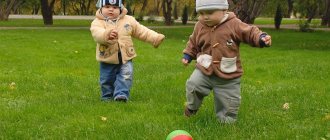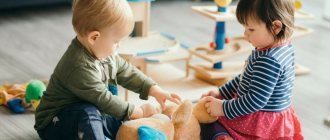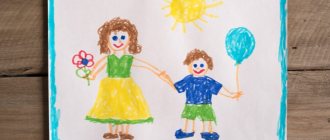Level of development of personal qualities
Each person is born with a certain character and set of personal qualities that determine behavioral characteristics and life priorities. Throughout life, some qualities change under the influence of various factors, some remain for life.
Psychologists say that the main stages of character formation occur in the first five years of life, then they are slightly adjusted based on life circumstances.
The main indicators and criteria that form the level of personal development include: the ability to take an active life position, the level of responsibility, the direction of the way of life, the level of culture and intelligence, the ability to manage emotions.
Many aspects of life depend on personal qualities, from the choice of clothing style to the priority of activities for a future profession. If a person realizes the need for a higher quality standard of living, he will try to achieve what he wants. Personal qualities such as determination, self-confidence, and the ability to adequately assess reality and one’s capabilities help with this. Even if a person’s innate characteristics are not at the highest level, but with awareness of one’s individuality, there is always the opportunity to decide on an activity that will most fully reveal a person’s abilities. Moreover, if desired, there is always the opportunity to develop personal qualities.
Personal influence
A person continues to develop throughout life. Naturally, everyone has certain inclinations, innate characteristics that we do not choose - there is a family and habitat that we can partially correct over time. How to be? A strong personality who knows what he wants will always strive for self-development, direct it to the necessary character traits, abilities, areas of life. Only through willpower and constant work can one influence these processes.
Moreover, philosophers consider work both literally and figuratively. Labor has made a person a person; in the process of activity and direction of his efforts, the person also develops and acquires certain skills. There is also professional growth, as one of the facets of a holistic personality.
Now psychologists are talking more and more about the personal factor of development and calling for responsibility for one’s life. It is wrong to say that I am the way nature created me and I can’t do anything; this is a passive position in life.
Development of children's personal qualities
The development of a child begins with his birth. This is a multilateral process of interaction between parents, society and self-development. The main responsibility, of course, rests with the family. Here begins the knowledge of oneself as a separate individual, learns different options for interaction with other people and options for responses.
Today, the opinion has become established that all manifestations of human character are acquired in early childhood. At this time, three key groups of personality traits are formed. Depending on the period of life, the formation of methods of motivation, styles of behavior and tools for interaction with other people occurs.
Factors in the development of personal qualities
As soon as a child begins to perceive himself as a separate individual, begins to realize his place in the world around him, the process of developing basic qualities begins, including this is influenced by the development of the sensory sphere of life. There are several key factors that indicate the beginning of the process:
- active and appropriate use of personal pronouns;
- possession of self-care and self-control skills;
- the ability to describe one’s experiences and explain the motivation for actions.
Age of onset of personality development
Based on the above, the age of onset of personality formation becomes clear. Psychologists indicate an age of two to three years. However, it cannot be said that nothing happens until this moment. There is active preparation and formation of individual preferences, communication abilities, and temperament. By the age of five, the child fully perceives himself as a separate person with individual characteristics, who is in an active relationship with the surrounding reality.
A person is influenced not only by his family, but also by society, school, and friends. This environment certainly leaves its mark on the behavior and formation of the child. However, only close people can lay the foundation. They are the ones who set guidelines and show ways of interaction within the family and with other people. Since the child is not yet familiar with the rules of behavior in society, he focuses on his relatives and takes an example from them. Therefore, very often children have many common traits with their parents. Often the child completely copies the behavioral model of the parents.
Read further: 11 factors that have a negative impact on a person’s personality
Formation of child qualities
At the stage of initial formation, there is no point in trying to adjust or further develop personal qualities.
The best contribution will be to create conditions for the development of physical, emotional, and intellectual abilities.
Next, you should gently and unobtrusively introduce the child to the moral, ethical and social norms accepted in society. Each family operates with its own individual education system, which in turn forms a “family credo”.
Such an educational environment with specific methods and measures of influence occupies a major place in the life of a child. The formation of personality depends on the effectiveness of its influence. One method is communication. He plays an important role in character formation. This method is important at all stages of development. For the successful development and formation of new personal qualities, the child must constantly be involved in active activities.
Development of students' personal qualities
If in preschool age the main reference point and authority for the child were the parents, then with the beginning of active learning activities the order of things changes somewhat.
Firstly, other adults appear in the child’s life who do not belong to the family, but also occupy an important place in life. These are teachers, coaches, educators. With the correct organization of the educational process, along with educational cognitive activity, the development of students’ personal qualities constantly occurs.
The opinion of these people can often be more authoritative in some matters than the word of the parents. This is a normal phenomenon, because the child feels new abilities and facets of his development. The development of personal qualities, which is focused on these people, is aimed at the successful organization of educational activities, the ability to organize their time and achieve their goals. Personal values are also formed, which are interconnected with social norms, and qualities such as responsibility and creativity appear.
Also at this time, friends and comrades appear, who also influence the formation of personality traits. During this period, the foundations are laid for the ability to interact with friends, behavior during conflicts, and the correct ways to resolve conflict situations. During this period, the child begins to develop in different directions, as new platforms appear for the realization of personal potential. There is an understanding and evaluation of oneself as an equal person.
Development of personal and professional qualities
With the beginning of active professional activity, a person begins to realize not only his personal qualities, but also his professional ones.
The choice of a field of activity and the successful realization of oneself as a specialist depend on them. A person spends most of his life at work, and many expectations and aspirations are associated with this side of life. It is the qualities of a person as a professional that are the guideline by which a person’s compliance with his position, and in general, his field of activity, is assessed. An adequate perception of oneself in the team and the employees around is also an indicator of success as a professional.
A person who has a certain set of qualities suitable for his chosen profession develops much faster and achieves high goals, is confident in himself, and knows how to act to climb the career ladder.
Each individual profession requires certain professional qualities. Despite this, there is a list of general criteria that employers pay attention to. Their presence is welcome in almost any field of activity. Since not only his personal success, but also the development of the entire organization depends on the professionalism of each employee, the employer pays special attention to this factor.
Read further: Test “Which profession is right for you?”
Main professional qualities
The most important qualities are:
- ability to work as a team with a team;
- fast learning and flexibility;
- initiative, but not focusing on oneself;
- ability to complete a task without constant supervision from superiors;
- the ability to defend and argue one’s opinion;
- reaction speed and ability to take responsibility for one’s decisions;
- ability to accurately follow job instructions;
- communication skills and the ability to resolve conflict situations.
Professional qualities, like personal ones, are the result of the educational process. The contribution of parents, the general atmosphere in the family, confidence in a reliable rear as relatives help a person to feel confident, easily set goals and achieve them. The social sphere, the influence of teachers, friends is also important. However, the absence of traits instilled from childhood is not necessarily the final verdict. A person can always independently develop the necessary professional qualities.
Stages of formation of personal and professional qualities
Since the goal of any training is the formation of a professional in a certain specialty, the main stages of the development of personal and professional qualities occur in educational institutions. In addition to interacting with teachers, a person is at the stage of active self-development and self-improvement. Thus, it is during the period of receiving education that the main stages of the formation and development of the main qualities (both personal and professional) necessary for further successful professional activity occur.
The first stage is to determine the future field of activity in general and the profession in particular, based on personal capabilities and personal preferences. Next comes adaptation to unknown conditions of further development. At this stage, a large amount of information is received about the specifics of the job and the qualities that are necessary to succeed in it. After stabilizing the educational process and acquiring some practical skills, a full awareness of one’s suitability in the profession comes. Success in the future depends not so much on the presence of natural qualities and capabilities, but on the constant readiness to work on one’s personal and professional qualities.
Literature
1. Atlas of new professions [Text] // First edition - ASI, Skolkovo. – M., 2014. 2. Dodova, L.M. Psychological, social maturity and its phenomenological manifestations in adolescence [Text] // Prospects for the development of modern scientific knowledge: collection of scientific works - Cheboksary: Educational and Methodological Center, 2011. - P. 98-105. 3. Ivanchenko, G.V. On the threshold of a professional career: social problems and personal choice strategies [Text] // World of Russia. 2005. T. 14, No. 2. P. 97-125. 4. Makarov, V.V., Makarova G.A. Transactional analysis - Eastern version [Text]. - M.: Academic project, OPPL, 2002. 5. Petrova, G.I. “Self-care”: technology or anthropology? [Text] // Bulletin of Tomsk State University - Philosophy. Sociology. Political science. - 2009, No. 2(6), pp. 136-143. 6. Popov, A.A. Philosophy of open education. Socio-anthropological foundations and institutional and technological capabilities [Text]. Tomsk; Biysk: Publishing house. house "Biya", 2008. 7. Slobodchikov, V.I., E.I. Isaev Psychology of human development: development of subjective reality in ontogenesis [Text]: Textbook for universities. – M.: School press, 2000. 8. Strategy for the development of education in the Russian Federation for the period until 2025 [Text] // Order of the Government of the Russian Federation dated May 29, 2015 N 996-r, Moscow. - Russian newspaper - Federal issue No. 6693 (122), June 8, 2015 9. Modern educational technologies: textbook / edited by. ed. L.L. Rybtsova. - M.: Yurayt Publishing House, 2017; Ekaterinburg: Ural Publishing House. un-ta. 10. Stewart, Y. and W. Joines. Modern transactional analysis [Text]. - St. Petersburg: Social and Psychological Center, 1996.
Methods for developing personal qualities
The most important thing that a successful person should have, regardless of his professional activity, is self-confidence. This is the basis in any profession. It is not necessary to have leadership and lead everyone, it is enough to be able to adequately assess yourself and your capabilities, all possible risks. If you take on a task, you should never give it up if difficulties arise.
There are several basic methods that help in the development of personal qualities.
Introspection
The first step should be self-analysis to help highlight the qualities that you already have. Having decided on the missing qualities, you should choose ways to form them. This is a long and difficult process. It is important to initially decide on the desired result and develop several ways to achieve it. A prerequisite for success is the presence of deadlines for achieving the goal and an example to follow.
Principles: where to get it
Principles are the basis of personal growth. As you can see from the examples above, without having clear principles and understanding them, it is easy to go in the wrong direction.
Relationships, money, achievements, if they are created without taking these principles into account, then they will either be very difficult to create, or then they will not last.
Therefore, put principles at the basis of any undertaking. But sometimes, as with tickets or paper in the office, it is very difficult to notice the places where you deviate from your own principles, and personal growth stops.
This happens because the concepts of honesty, kindness, and lack of selfishness can vary greatly from person to person. Secular society does not set any strict standards for morality. There are laws, but they are not enough to develop humanity and have a moral core on which the personality rests.
What moral values are is well understood in all the major religions of the world. Where to start studying them?
- To develop a moral core, you can study the materials of the closest religion, read books, listen to lectures, attend services.
- Those who are completely uncomfortable with the thought of studying religious materials can read books on personal growth, for example, by Stephen Covey. They have a good discussion of human values, but there are no references to religion. This author took all the best from the major religions and was able to convey to the reader in a form in which even the most inveterate atheist can easily read everything in his books.










